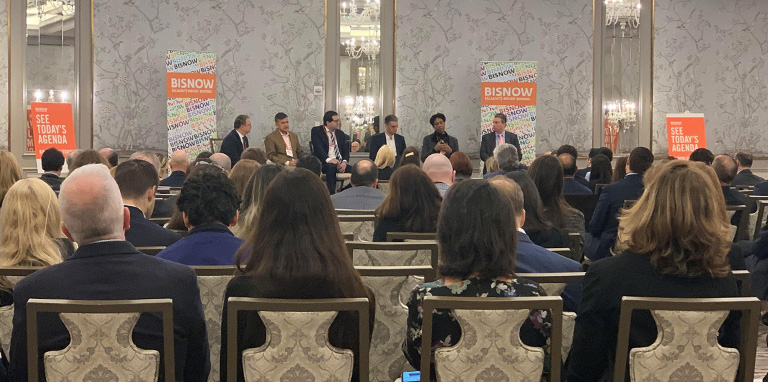
When it comes to calculating property taxes on hotels, few taxing jurisdictions fairly distinguish the taxable value of the real estate from FF&E and good will. Consequently, hotels can be paying significantly more in hotel property tax than what is fair. Appearing on a panel at the BISNOW Hospitality Investment, Development & Management Summit in New York City in early January 2020, David Wolfe, managing partner of the Property Tax division of Skoloff & Wolfe, P.C., joined a panel to discuss how property tax appeal savings can help New York City hotel operators stay competitive in the city’s hyper-competitive hospitality market.
Why are hotel property tax valuations so much more difficult to calculate?
“There’s a variability with hotels that is unlike other property classes. With hotels, your rates can change dramatically within a year, as can cap rates. So it continuously requires assessors and local jurisdictions to be 100% up to date in market activity. Unlike an office building where you’re leasing space and the landlord is collecting a rental stream, the tenants’ income is not part of how you value the business. For a hotel, however, you have guests staying there spending on the hotel as well as the real estate, which combined is the business income of the property. But the taxing authorities only have the right to tax you on the real estate, so you have to extrapolate the property from the experience of staying at the hotel. And that makes it a much more difficult valuation assignment. For example, if I’m paying $400 a night, which portion of that is actually for the real estate? Which portion is the personal property? Which portion is the goodwill? Which portion is the business value?
So, when you combine this complexity with the ever-changing fundamentals, it just becomes increasingly challenging for local jurisdictions and increasingly more important for property owners and hotel operators to be attuned to their underlying assessment. Depending on how the assessors are looking at the taxes and the values, we’ve seen dramatic changes in the property values unlike other classes.
What should New York City hotel operators know about their hotel property tax assessments?
“New York City hotel operators need to know that as ADR comes down, as RevPAR comes down, there is an opportunity to reduce property taxes. A hotel that two or three years ago had an average daily rate of $400 a night could now be down to $200 a night. As a result they should be paying dramatically less in taxes. Bringing that to the city is an essential component of ensuring that net operating income is as sustainable as possible. Frequently that’s what needs to be the focus, hotels need to be repositioned in an effort to maximize NOI,” Wolfe recommended.
What are the important hotel property tax appeal deadlines in New York and New York City?
“The deadline for a hotel property tax appeal in New York City is March 1. The deadlines for the rest of the state of New York are dependent on the local counties and jurisdictions.”
What is the first step in a hotel property tax appeal?
According to Wolfe, the first step is analyzing the income and expenses of the hotel, which can present a significant disconnect in cost and value. “We ask for the prior year’s detailed operating statement so that we can take a look at their average daily rate, their occupancy, the revenue per available room, and we look at the trends and the percentage of their expenses compared to their revenue,” he explained. “Ultimately, these are valued on their income. However, real-world value and tax court value are going to be significantly different.”
How much does it cost to complete a hotel property tax appeal?
“At Skoloff & Wolfe, P.C., a client will not be responsible for any legal fees unless we achieve tax savings on their behalf. We very much see ourselves as a partner with our clients. So, not only are we reducing their taxes, but we’re increasing the value of their property.”
If you would like to learn more about hotel property tax appeal, please call us at: 973.992.0900 or fill out our contact form.
David Wolfe is Co-Managing Partner at Skoloff & Wolfe, P.C. and Chair of the firm’s Property Tax Appeal practice.